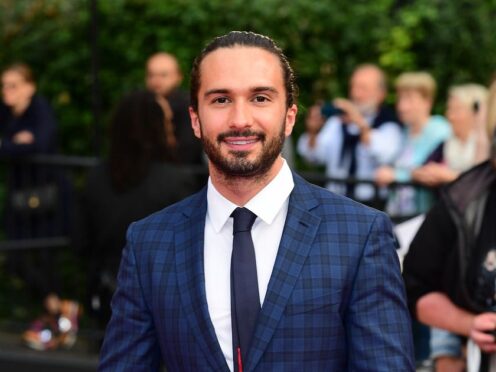Fitness expert Joe Wicks has said he hopes opening up about his turbulent childhood due to his parents’ mental health issues will inspire others to have further conversations around the subject.
The 36-year-old, known as The Body Coach, will explore how his mother’s eating disorder and severe obsessive compulsive disorder and his father’s drug addiction affected him as a child, while examining the UK’s parental mental health.
A new BBC documentary, titled Joe Wicks: Facing My Childhood, was produced by documentary-maker Louis Theroux, who previously revealed Wicks’s exercise programme was one of the things that helped him cope during lockdown.
Wicks told the Radio Times: “After PE with Joe ended, I realised I hadn’t just helped people’s physical health, but their mental health, too. I wanted to keep that conversation going.
“As a young kid, I didn’t realise my parents had mental health issues. I just thought my dad was a drug addict and my mum loved cleaning.
“But I was aware I had this ability to share my story, and that hopefully it would inspire people.”
The fitness and nutrition specialist revealed that as a child he used exercise to de-stress and avoid the atmosphere at home.
He admitted: “If I hadn’t exercised, I would have been a nightmare.
“No one would have been able to control me. PE was the one subject I looked forward to because it helped me focus.”
Wicks revealed he has received little therapy himself, except a few family counselling sessions as a child, and that the documentary is the deepest he has gone into his past.
Learning from his experience of being kept in the dark, Wicks hopes that children can be kept more informed about their parents’ mental health issues.
He said: “Millions of parents are experiencing mental health issues, particularly after lockdown.
“They’re bottling it up and trying to be brave and happy, but inside they’re probably crumbling. When the parents pull away, the children become withdrawn.”

As part of the documentary, he visits the charity Our Time, which supports young people with parents suffering from mental illnesses, many of whom have become carers at a young age.
Wicks noted that if you use the right language, children can “process things” and understand that their parent is having a tough day but it is “nothing to do with them”.
He added: “That’s powerful. But it’s also hard, because of the stigma. You’re scared that your children might get taken away from you, or that people might make fun of them.
“So it’s hard to say ‘Just talk about it’, because normally you keep it from your friends, your colleagues, your boss.”
The documentary, which will air on BBC One on May 16 at 9pm, will also explore how exercise, diet and sleep can help mental health.
The full interview is in this week’s Radio Times magazine.
